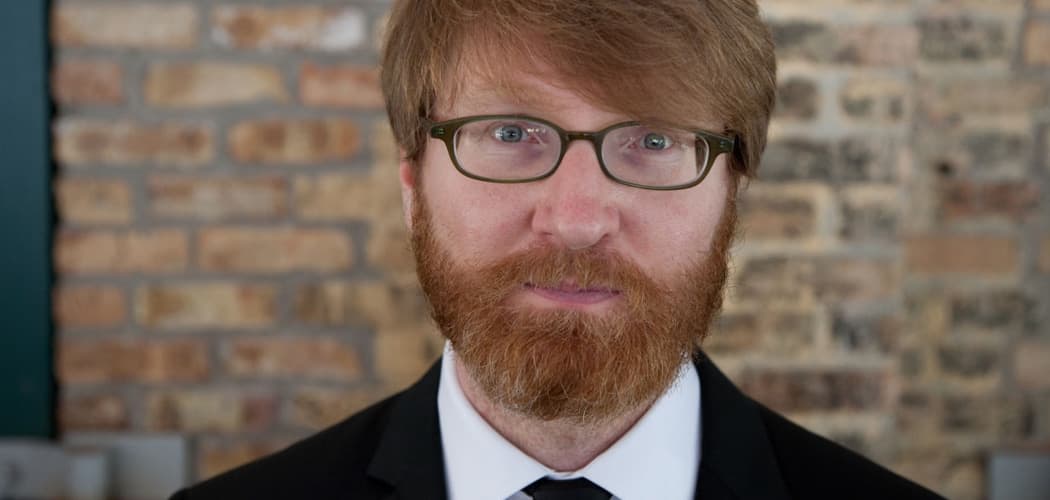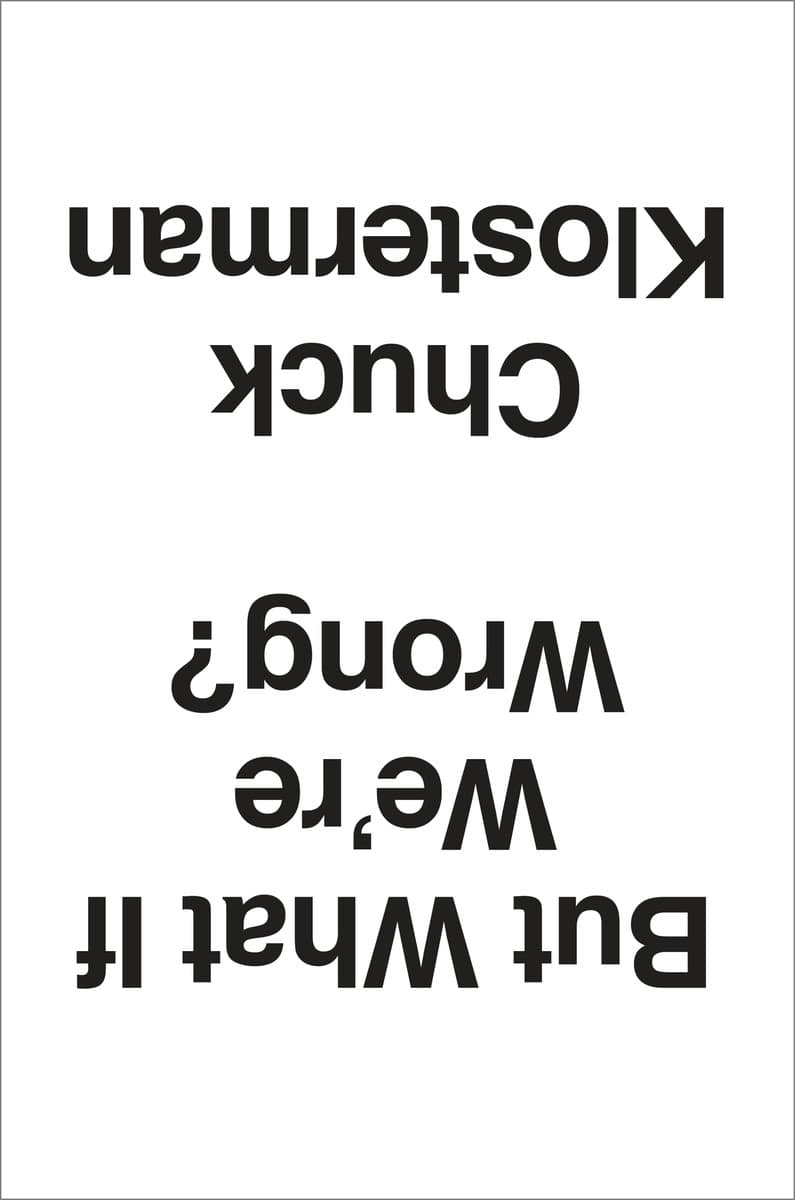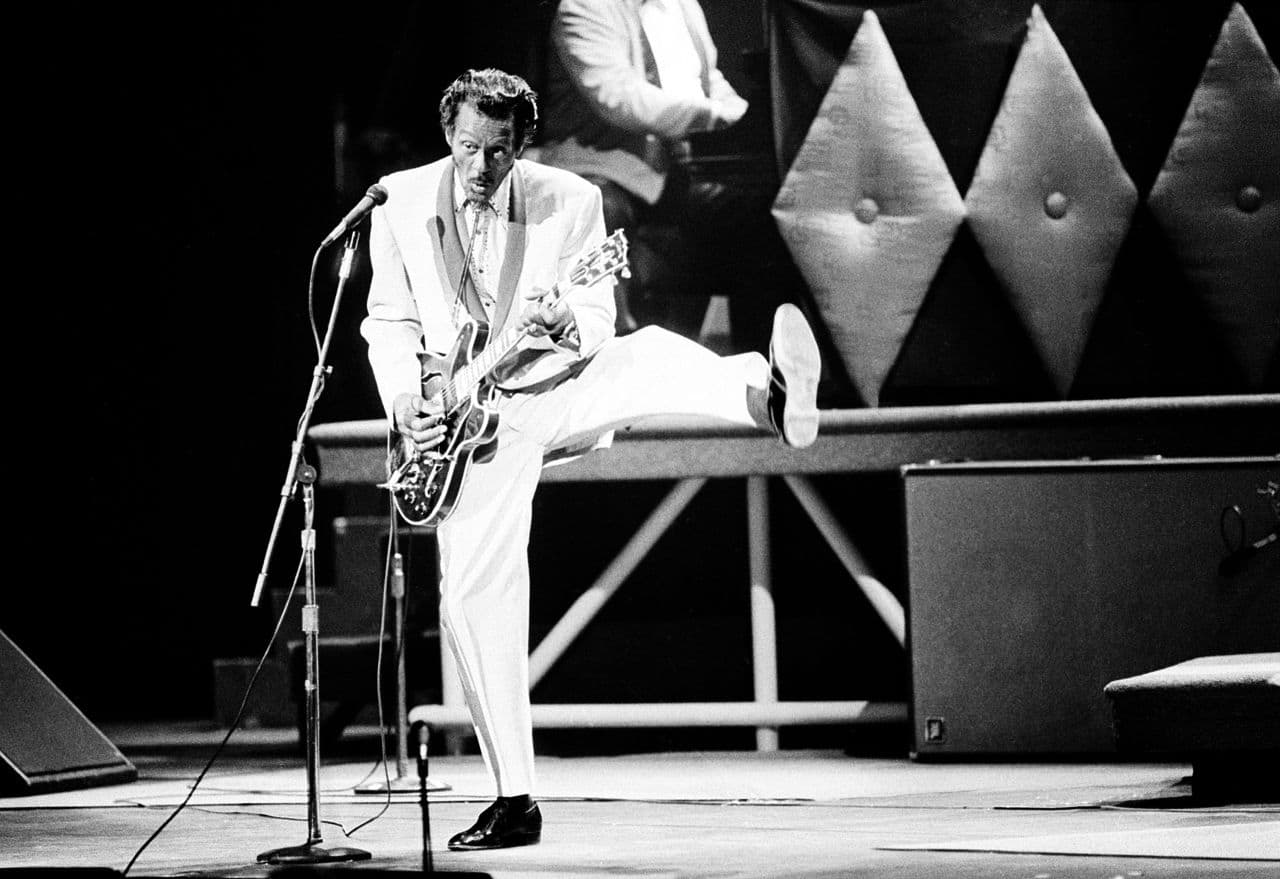Advertisement
Chuck Klosterman Asks The Right Question: What If We're Wrong?

A disclaimer: It's a fool’s errand to attempt to predict the cultural significance of a book positing that the cultural significance of all art, or for that matter, all ideas, is forever in flux.

Next week, The New York Times bestselling author Chuck Klosterman, author of "I Wear The Black Hat," releases his latest collection of cultural analysis, "But What If We’re Wrong: Thinking About the Present As If It Were the Past," with Blue Rider Press. He’ll be reading selections at the Brattle Theatre at a sold-out Harvard Book Store event Thursday. The book conducts a series of thought experiments in a broad range of fields, touching on pop music, history, government, physics and more, with some help from experts in each field. Each thought experiment tries to determine how our times will be summarized, shared and understood in the centuries to come. Each thought experiment usually unfolds as follows:
There’s this thing that we assume is a permanent fixture of our society. It might be the literary prestige of David Foster Wallace, our general understanding of gravity or the infallibility of democracy. But what if these ideas or ideals change with time? What if our definition of “good” literature changes or we alter our basic moral code? Or, what if we're not just a little wrong, but completely misjudge the way future generations will analyze our times, or we severely misunderstand the way the world works? Is it possible that we are living in a computer simulation? Is it possible that we don't understand what gravity is and how it works?
These are difficult ideas to wrap your head around, even for Klosterman, who purportedly thinks about this sort of thing all the time and is an existential crisis junkie of sorts. Pairing an author with the public clout of Klosterman and a subject matter deeply ingrained in popular culture (he also touches on the NFL, Bob Dylan and Shakespeare) with predictions about the future, the book's release will unlikely be met without controversy.
First and foremost, you’re bound to disagree with several, if not many, of the collection of theories Klosterman has collected from various thinkers. Most of his questions require wholly subjective answers, and there is little if any popular discourse related to thinking about the present as if it were the past (which is half of Klosterman’s argument); there’s such a broad range of possible answers to the questions he poses that his answer to each will inevitably seem ludicrous to somebody.

While he does consult, in the case of science, the experts, and, in the case of music, the other experts, they often disagree with his conclusions. Astrophysicist Neil deGrasse Tyson dismisses his suggestion that we could just be as wrong about gravity as Aristotle, who theorized that objects simply liked being at the center of the universe, Earth. Klosterman says Chuck Berry will be remembered as the quintessential rock musician; musician Ryan Adams and novelist Jonathan Lethem both think Bob Dylan is a better choice and disagree with Klosterman’s methodology — Klosterman picks the person he thinks represents the purest distillation of rock music, while Lethem picks Dylan because he's the most prolific and has the most diverse oeuvre.

But Klosterman isn’t concerned with whether or not you buy any of these ideas. He’s not sure he buys them either. His concern is the fact that we don’t even consider the possibility that we could be hugely wrong about something, or that our current worldview might drastically change. He’s not saying that we’re wrong about everything. He’s saying that, chances are, we’re wrong about something, and we have to be willing to acknowledge that uncertainty. It’s a book that applies the Gladwellian approach to thinking and observing. It posits an unconventional idea and gives a bunch of examples in support of it in order to swing the reader's cognitive compass a little in its direction.
Why is Klosterman writing this book now? It's partly because we live in a society saturated with ideas and information thanks to an omnipresent internet and an exponential rate of technological advancement. He suggests that the internet is fundamentally altering the way we intellectually interact with the past because it merges the past and present into one collective intelligence, and that it’s amplifying our confidence in our beliefs by (a) making it seem like we’ve always believed what we believe and (b) giving us an endless supply of evidence in support of whatever we believe. Klosterman suggests that since we can always find information to prove our points, we lack the humility necessary to prudently assess the world around us. And with technological advances increasing the rate of change, the future will arrive much faster, making the questions he poses more relevant.
The book isn’t purely an intellectual experiment. Original observations of society and our culture abound. There’s his point that only someone who truly understands architecture would argue against the claim that Frank Lloyd Wright is the greatest architect ever, from which he deduces that history is written by those who don’t really understand what they’re talking about.

There’s also the argument that Shakespeare's plays are held in higher regard than those of Christopher Marlowe and Ben Jonson because we find good playwriting by searching for Shakespearean devices. And he predicts that team sports will become obsolete as we strive for a world of equality and painlessness.
Klosterman definitely looks at the world in a different way than most of us do. But what’s he proposing isn’t that radical. He just wants to slightly alter our perspective on history, knowledge and truth and make us really think about why we believe what we believe.
Will Sullivan is an ARTery intern. He studies math and music and runs on the cross country and track teams at Swarthmore College.